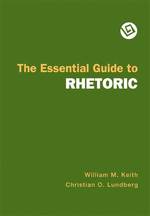- ホーム
- > 洋書
- > 英文書
- > Religion / Ethics
Full Description
Can humans flourish without destroying the earth? In this book, experts on many of the world's major and minor religious traditions address the question of human and earth flourishing. Each chapter considers specific religious ideas and specific environmental harms. Chapters are paired and the authors work in dialogue with one another. Taken together, the chapters reveal that the question of flourishing is deceptively simple. Most would agree that humans should flourish without destroying the earth. But not all humans have equal opportunities to flourish. Additionally, on a basic physical level any human flourishing must, of necessity, cause some harm. These considerations of the price and distribution of flourishing raise unique questions about the status of humans and nature. This book represents a step toward reconciliation: that people and their ecosystems may live in peace, that people from different religious worldviews may engage in productive dialogue; in short, that all may flourish.
Contents
Table of Contents
Acknowledgements
List of Contributors
Introduction by Laura M. Hartman
Part 1: Flourishing and Its Costs
Chapter 1: Buddha, Aristotle, and Science: Rediscovering Purpose and the Value of Flourishing in Nature by Colette Sciberras
Chapter 2: Eating: Glimpsing God's Infinite Goodness by Nelson Reveley
Chapter 3: Dialogue: Sciberras and Reveley
Part 2: Animals and Care
Chapter 4: Daoism, Natural Life, and Human Flourishing by David E. Cooper
Chapter 5: All God's Creatures are Communities Like You (Qur'an 6:38): Precedents for Eco-halal Meat in Muslim Traditions by Sarah E. Robinson-Bertoni
Chapter 6: Dialogue: Cooper and Robinson-Bertoni
Part 3: Climate and Culture
Chapter 7: Yoga Bodies and Bodies of Water: Solutions for Climate Change in India? By Christopher Miller
Chapter 8: Understanding a 'Broken World': Islam, Ritual, and Climate Change in Mali, West Africa by Dianna Bell
Chapter 9: Dialogue: Miller and Bell
Part 4: Texts and Traditions
Chapter 10: Intertextually Modified Organisms: Genetic Engineering, Jewish Ethics, and Rabbinic Text by Rebecca J. Epstein-Levi
Chapter 11: Flourishing in Crisis: Environmental Issues in the Catholic Social Teachings by Jennifer Phillips
Chapter 12: Dialogue: Epstein-Levi and Phillips
Part 5: Communities and Human Agency
Chapter 13: Flourishing in Nature Religion by Chris Klassen
Chapter 14: Interfaith Environmentalism and Uneven Opportunities to Flourish by Amanda Baugh
Chapter 15: Dialogue: Klassen and Baugh
Part 6: Respect and Relationality
Chapter 16: Developing a Mengzian Environmental Ethic by Cheryl Cottine
Chapter 17: Relationality, Reciprocity and Flourishing in an African Landscape by Michael Hannis and Sian Sullivan
Chapter 18: Dialogue: Cottine, Hannis, and Sullivan
Conclusion by Laura M. Hartman








